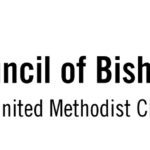Compiled by Ryan Dunn and originally published at https://www.umc.org/en/content/scriptural-reflections-for-mental-wellness
How many of the following symptoms have you ever personally encountered?
Depression… anxiety… inability to concentrate… mood changes… trouble relating to people… low energy… feeling hostile towards others… excessive worry… feeling unable to cope with stress… excessive drug or alcohol consumption…
All of us have dealt with several of these symptoms at points in life. Many of us have dealt with all of the symptoms. Obviously, the symptoms of mental health disorders aren’t unfamiliar to any of us. And yet, we still experience trepidation in talking about these symptoms as we’re dealing with them. This is especially true in the Christian church, where we display a tendency to brush aside mental health issues through invitations to “pray on it” and “turn your cares over to God.”
Such advice is a useful invitation for God’s involvement in our circumstances, but it stops short of taking mental health issues as seriously as we might take other symptoms of physical ailments.
William Ames, an English theologist from the 17th century, noted “faith is the virtue by which, clinging to the faithfulness of God, we lean upon Him, so that we may obtain what He gives us.” In our faith, we might lean upon all the assistance that God gives to us–including the assistance of doctors, support groups and counselors.
If you’re looking for help and need someone to talk to, Psychology Today offers a referral site. If you have suicidal thoughts call a suicide hotline number. In the U.S., call the National Suicide Prevention Lifeline at 1-800-273-TALK (1-800-273-8255) or use its webchat on suicidepreventionlifeline.org/chat.
Scripturally speaking, we are never invited to hide our mental hurts from God or from sharing in community. In fact, the scriptures below encourage us to recognize that which ails us and to share our burdens with God and community.
Mental health issues are not sin issues
An inability to individually deal with mental health symptoms is not an indication of sin in your life. Rather, it might be an indication of illness–and may need to be treated as any other illness gets treated (with a doctor’s help).
In John 9, Jesus meets a blind man and he is asked if the man is blind because of the man’s sin or his parents’ sin. Jesus answered plainly,
“Neither this man nor his parents sinned; he was born blind so that God’s works might be revealed in him.”
Illness is not necessarily a sin issue. You are not sinning because you feel depressed.
I can’t pretend to know if God plans for any of us to have illnesses. But I do find solace in the hope that a born illness might offer healing, too.
“I consider that the sufferings of this present time are not worth comparing with the glory about to be revealed to us.” [Romans 8:18]
Our struggles are meant to be shared
Scripture does not encourage to take our battles away from God–but invites us to share our struggles with God and the community of faith.
“Have you not known? Have you not heard?
The Lord is the everlasting God,
the Creator of the ends of the earth.
He does not faint or grow weary;
his understanding is unsearchable.
He gives power to the faint,
and strengthens the powerless.
Even youths will faint and be weary,
and the young will fall exhausted;
but those who wait for the Lord shall renew their strength,
they shall mount up with wings like eagles,
they shall run and not be weary,
they shall walk and not faint.” [Isaiah 40:28-31]
“God is our refuge and strength,
a very present help in trouble.
Therefore we will not fear, though the earth should change,
though the mountains shake in the heart of the sea;
though its waters roar and foam,
though the mountains tremble with its tumult.” [Psalm 46:1-3]
“Be merciful to me, O God, be merciful to me,
for in you my soul takes refuge;
in the shadow of your wings I will take refuge,
until the destroying storms pass by.” [Psalm 57:1]
God sees what you’re going through
Scripture hints that God knows more about us than we know about ourselves. Even when we lack the words to communicate how we feel–when what we’re feeling might simply be a big emptiness–God’s Spirit communicates on our behalf.
“Likewise the Spirit helps us in our weakness; for we do not know how to pray as we ought, but that very Spirit intercedes with sighs too deep for words.” [Romans 8:26]
And God’s presence is always promised to us.
“do not fear, for I am with you,
do not be afraid, for I am your God;
I will strengthen you, I will help you,
I will uphold you with my victorious right hand.” [Isaiah 41:10]
“Keep your lives free from the love of money, and be content with what you have; for he has said, ‘I will never leave you or forsake you.’” [Hebrews 13:5]
“For it is the God who said, “Let light shine out of darkness,” who has shone in our hearts to give the light of the knowledge of the glory of God in the face of Jesus Christ.” [2 Corinthians 4:6]
“For I am convinced that neither death, nor life, nor angels, nor rulers, nor things present, nor things to come, nor powers, nor height, nor depth, nor anything else in all creation, will be able to separate us from the love of God in Christ Jesus our Lord.” [Romans 8:38-39]
You don’t need to go it alone
Scripture challenges us to be present for one another. Christians believe that God perfectly exemplified such a challenge in the person of Jesus of Nazareth–who was God on earth. God came to be with us–and so we might be present with one another.
In many ways, we are bound to one another. So when one person suffers, we all encounter suffering. 1 Corinthians reminds of our connectedness:
“If one member suffers, all suffer together with it; if one member is honoured, all rejoice together with it.” [1 Corinthians 12:26]
We are to share the love Christ shows us with others:
“Bear one another’s burdens, and in this way you will fulfill the law of Christ.” [Galatians 6:2]
Reaching out does not make you weak
So often, we resist reaching out not because we don’t know where to turn–but because we fear being vulnerable. Jesus met others in moments of vulnerability. In fact, he seemingly sought out the most vulnerable–associating with those in need of healing or those who had been marginalized in society. Jesus did not chastise or condemn these individuals. Instead, he took steps to make them well. He reminds us of his healing goal in Matthew:
“Come to me, all you that are weary and are carrying heavy burdens, and I will give you rest. Take my yoke upon you, and learn from me; for I am gentle and humble in heart, and you will find rest for your souls. For my yoke is easy, and my burden is light.” [Matthew 11:28-30]
There is hope–even when you don’t feel it
There is still work being done on your behalf. Good things are still possible. The story of scripture leads us to faith and hope. So scripture offers many reminders of hope for those of us feeling disconnected and hopeless at the moment:
‘Blessed are the poor in spirit, for theirs is the kingdom of heaven.
‘Blessed are those who mourn, for they will be comforted.
‘Blessed are the meek, for they will inherit the earth.
‘Blessed are those who hunger and thirst for righteousness, for they will be filled.
‘Blessed are the merciful, for they will receive mercy.
‘Blessed are the pure in heart, for they will see God.
‘Blessed are the peacemakers, for they will be called children of God.
[Matthew 5:1-9]
“May you be made strong with all the strength that comes from his glorious power, and may you be prepared to endure everything with patience, while joyfully giving thanks to the Father, who has enabled you to share in the inheritance of the saints in the light. He has rescued us from the power of darkness and transferred us into the kingdom of his beloved Son, in whom we have redemption, the forgiveness of sins.” [Colossians 1:11-14]
“For in hope we were saved. Now hope that is seen is not hope. For who hopes for what is seen? But if we hope for what we do not see, we wait for it with patience.” [Romans 8:24-25]




